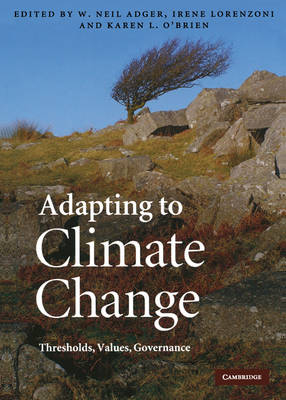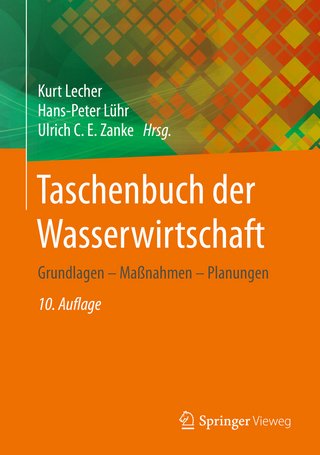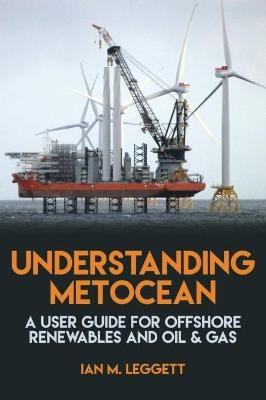
Adapting to Climate Change
Cambridge University Press (Verlag)
978-0-521-76485-8 (ISBN)
Adapting to climate change is a critical problem facing humanity. This involves reconsidering our lifestyles, and is linked to our actions as individuals, societies and governments. This book presents top science and social science research on whether the world can adapt to climate change. Written by experts, both academics and practitioners, it examines the risks to ecosystems, demonstrating how values, culture and the constraining forces of governance act as barriers to action. As a review of science and a holistic assessment of adaptation options, it is essential reading for those concerned with responses to climate change, especially researchers, policymakers, practitioners, and graduate students. Significant features include historical, contemporary, and future insights into adaptation to climate change; coverage of adaptation issues from different perspectives: climate science, hydrology, engineering, ecology, economics, human geography, anthropology and political science; and contributions from leading researchers and practitioners from around the world.
W. Neil Adger is Professor of Environmental Economics in the School of Environmental Sciences at the University of East Anglia, Norwich, UK. He has led the programme on adaptation in the Tyndall Centre for Climate Change Research at the University of East Anglia since its inception in 2000. He served as a Lead Author in the Millennium Ecosystem Assessment and as a Convening Lead Author for the Fourth Assessment Report of the Intergovernmental Panel of Climate Change. He is a co-recipient as a member of the IPCC of the Nobel Peace Prize 2007. He was awarded a Philip Leverhulme Prize from the Leverhulme Trust in 2001 for his research achievements. Irene Lorenzoni is Lecturer in Environmental Politics and Governance at the School of Environmental Sciences at the University of East Anglia, Norwich, UK. Her interest is in the understanding of, and engagement with, climate change and energy. She is deputy leader of the adaptation programme of the Tyndall Centre for Climate Change Research, and a contributing author for the Fourth Assessment Report of the IPCC on barriers to adaptation, which was co-awarded the Nobel Peace Prize in 2007. Karen L. O'Brien is a Professor in the Department of Sociology and Human Geography at the University of Oslo, Norway and Scientific Chair of the Global Environmental Change and Human Security (GECHS) project of the International Human Dimensions Programme on Global Environmental Change (IHDP). Her current research focuses on climate change adaptation as a social process, and on the role that values and worldviews play in responding to environmental change. She was a lead author on the Fourth Assessment Report of the IPCC.
Introduction; 1. Adaptation now; Part I. Adapting to Thresholds in Physical and Ecological Systems: 2. Ecological limits of adaptation to climate change; 3. Adapting to the effects of climate change on water supply reliability; 4. Protecting London from tidal flooding: limits to engineering adaptation; 5. Climate prediction: a limit to adaptation?; 6. Learning to crawl: how to use seasonal climate forecasts to build adaptive capacity; 7. Norse Greenland settlement and limits to adaptation; 8. Sea ice change in Arctic Canada: are there limits to Inuit adaptation?; Part II. The Role of Value and Culture in Adaptation: 9. The past, present and some possible futures of adaptation; 10. Do values subjectively define the limits to climate change adaptation?; 11. Conceptual and practical barriers to adaptation: vulnerability and responses to heat waves in the UK; 12. Values and cost-benefit analysis: economic efficiency criteria in adaptation; 13. Hidden costs and disparate uncertainties: trade-offs in approaches to climate policy; 14. Community based adaptation and culture in theory and practice; 15. Exploring the invisibility of local knowledge in decision-making: the Boscastle harbour flood disaster; 16. Adaptation and conflict within fisheries: insights for living with climate change; 17. Exploring cultural dimensions of adaptation to climate change; 18. Adapting to an uncertain climate on the great plains: testing hypotheses on historical populations; 19. Climate change and adaptive human migration: lessons from rural North America; Part III. Governance, Knowledge and Technologies for Adaptation: 20. Are our levers long and our fulcra strong enough? Exploring the soft underbelly of adaptation decisions and actions; 21. Decentralized planning and climate adaptation: toward transparent governance; 22. Climate adaptation, local institutions and rural livelihoods; 23. Adaptive governance for a changing coastline: science, policy and publics in search of a sustainable future; 24. Climate change, international cooperation and adaptation in transboundary water management; 25. Decentralization: a window of opportunity for successful adaptation to climate change?; 26. Adapting to climate change: the nation-state as problem and solution; 27. Limits to adaptation: analysing institutional constraints; 28. Accessing diversification, networks and traditional resource management as adaptations to climate extremes; 29. Governance limits to effective global financial support for adaptation; 30. Organizational learning and governance in adaptation in urban development; 31. Conclusions: transforming the world; Index.
| Erscheint lt. Verlag | 25.6.2009 |
|---|---|
| Verlagsort | Cambridge |
| Sprache | englisch |
| Maße | 178 x 254 mm |
| Gewicht | 1130 g |
| Themenwelt | Naturwissenschaften ► Geowissenschaften ► Meteorologie / Klimatologie |
| Sozialwissenschaften ► Politik / Verwaltung | |
| Wirtschaft ► Volkswirtschaftslehre | |
| ISBN-10 | 0-521-76485-8 / 0521764858 |
| ISBN-13 | 978-0-521-76485-8 / 9780521764858 |
| Zustand | Neuware |
| Haben Sie eine Frage zum Produkt? |
aus dem Bereich


